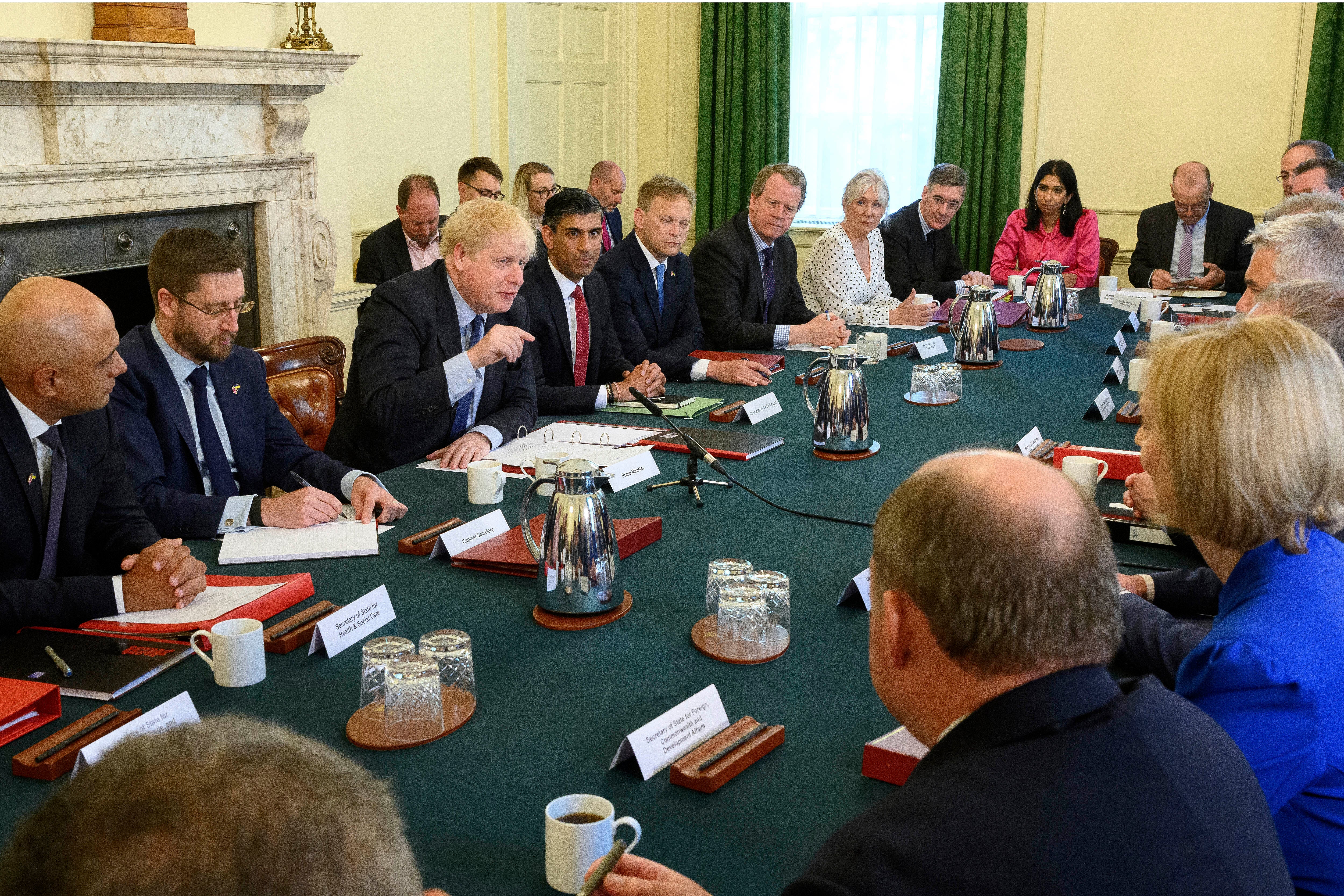Labour motion calling for strengthening of ministerial code passes after government abstains
Non-binding motion passed by 215-0 votes after Tory MPs abstained

Your support helps us to tell the story
From reproductive rights to climate change to Big Tech, The Independent is on the ground when the story is developing. Whether it's investigating the financials of Elon Musk's pro-Trump PAC or producing our latest documentary, 'The A Word', which shines a light on the American women fighting for reproductive rights, we know how important it is to parse out the facts from the messaging.
At such a critical moment in US history, we need reporters on the ground. Your donation allows us to keep sending journalists to speak to both sides of the story.
The Independent is trusted by Americans across the entire political spectrum. And unlike many other quality news outlets, we choose not to lock Americans out of our reporting and analysis with paywalls. We believe quality journalism should be available to everyone, paid for by those who can afford it.
Your support makes all the difference.A Labour motion calling for a “clean up in politics” and the strengthening of the ministerial code has passed the Commons after Boris Johnson’s government abstained.
It comes after accusations last month the prime minister had watered down the rules for ministers after the code was amended to make clear they will not automatically lose their jobs for a breach.
The non-binding motion calls on Mr Johnson to implement all of the recommendations made by the Committee on Standards in Public Life — a body set up by Sir John Major — from 2021 as a “matter of urgency”.
They include enshrining the ministerial code in primary legislation, giving powers to the prime minister’s independent adviser to initiate investigations into breaches and the authority to determine breaches.
The motion also urges the Cabinet Office minister, Steve Barclay, to make a statement on implementing the recommendations before the summer recess and “each year subsequently”.
It passed on Tuesday by 215-0 votes after the government ordered Conservative MPs to abstain.
Speaking during the debate, Labour’s deputy leader, Angela Rayner, accused the prime minister of undermining British values by “downgrading” standards expected in public life.
“Honesty matters, integrity matters and decency matters. We should be ambitious for high standards, and we should all be accountable,” she said.
“No more ministers breaking the rules and getting away with it. No more revolving door between ministerial office and lobbying jobs, no more corruption and waste of taxpayers’ money and no more members of Parliament paid to lobby their own government.”
In an article for The Independent, Ms Rayner also accused the government of “cherry picking” the recommendations put forward by the Committee on Standards in Public Life in the November 2021 report.
Responding for the government, the minister Michael Ellis said the government would abstain, telling MPs: “We do not support the suggestion that the recommendations of one particular report should be adopted without due consideration as a single block.”
Mr Ellis added: “The code sets out the Prime Minister’s expectations for his or her ministers, detailing the standards of conduct expected of those who serve government and the principles that underpin those standards.”
The minister described the code as an “evolving document” and said of recent updates: “It is frankly fake news to say, as some have, that it has been weakened. It is the exact opposite, it has been strengthened.
“In doing so he has unambiguously drawn on the advice of both the independent adviser on ministerial interests and the Committee on Standards in Public Life.”
The Tory MP John Penrose, who resigned this week as the prime minister’s anti-corruption tsar, also reiterated his claim during the debate that there had been a “material breach” of the ministerial code.
He said Mr Johnson had failed to address in a letter to his independent adviser the “serious failings of leadership” highlighted in the senior civil servant Sue Gray’s report.
Mr Penrose said leadership was “one of the fundamental” Nolan principles of integrity in public life, adding: “Is it also not a problem that he has managed to ignore that entire section of the report, gloss over it and fail to address it publicly?”
Join our commenting forum
Join thought-provoking conversations, follow other Independent readers and see their replies
Comments